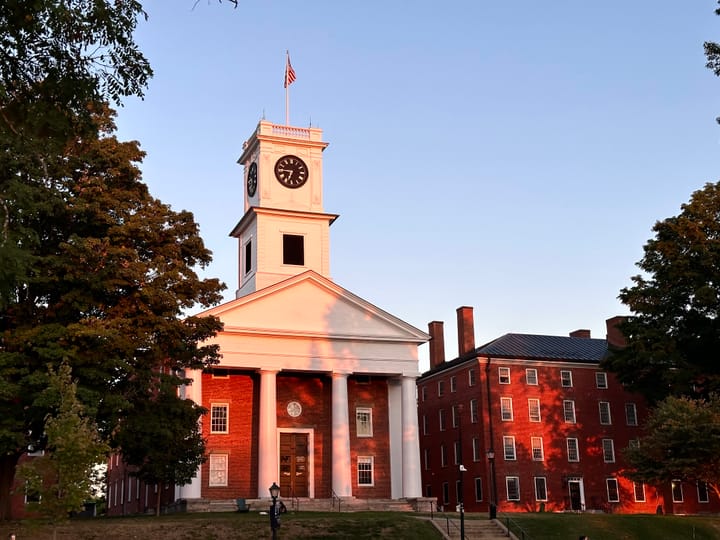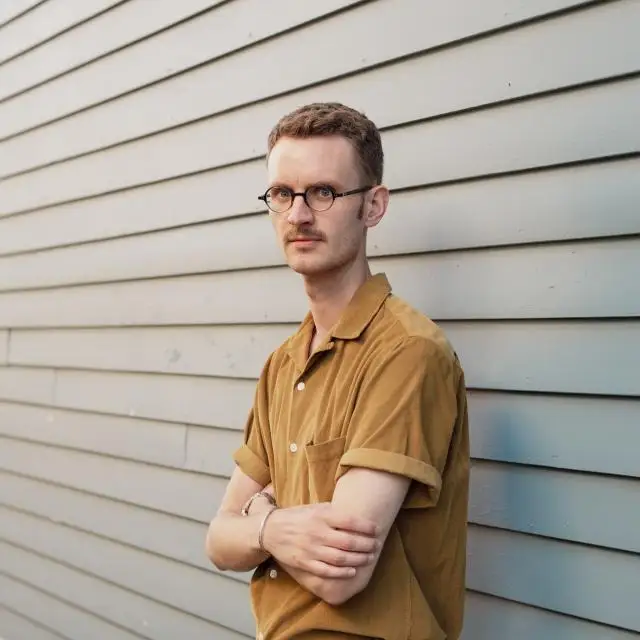Friends, Colleagues and Students Mourn Professor Stanley Rabinowitz
Rabinowitz taught at Amherst for more than five decades and was crucial to the establishment of the Amherst Center for Russian Culture. He built lasting relationships with generations of students.

Stanley J. Rabinowitz, Henry Steele Commager Professor of Russian, Emeritus, died last week at his home.
Rabinowitz taught at the college for over five decades and was the author of many books on Russian literature and ballet.
Before joining the Russian department in 1973, Rabinowitz received B.A. and Ph.D. degrees from Brooklyn College and Harvard, the first in his family to attend college. Over his time at Amherst, his classes would come to take on legendary status. Though he retired in 2018, he continued to teach a spring semester course every year, including “Strange Russian Writers,” which he was scheduled to teach this upcoming semester.
Rabinowitz will long be remembered for his key role in convincing Tom Whitney ’37 to donate his Russian art collection to the college, establishing the Amherst Center for Russian Culture in 1991. Rabinowitz was the director of the center from its inception until his retirement.
He was recently working on a biography about Whitney which will be published posthumously, said Professor of Russian, Emerita, Jane Taubman.
Throughout the past week, in eulogies, conversations, and Facebook posts, hundreds of Rabinowitz’s friends, colleagues, and multiple generations of former students have come together to remember him. His funeral was originally to be held in Douglass Funeral Home, but it had to be moved to Johnson Chapel to accommodate the number of attendees.
Friends and colleagues remembered Rabinowitz for his humor, enduring relationships with students, and his “Stanecdotes,” a term that his close friend Class of 1880 Professor in Greek Rick Griffiths coined to describe stories about him.
As new members of the faculty, Griffiths and Rabinowitz co-taught a course in 1977 titled “National Epic,” and their friendship blossomed from there.
Reflecting on their relationship in his eulogy, Griffiths said that he and Rabinowitz would often tease each other.
“For 50 years, we kept each other humble, like fretful brothers,” he said.
“People have asked me whether it was hard to get a word in while teaching with him because he was so funny, and the answer is no, he was very generous. He was a very good collaborator,” Griffiths reflected.
The two went on to co-authored numerous books, including “Epic and the Russian Novel from Gogol to Pasternak,” which was based on their class, and “Novel Epics: Gogol, Dostoevsky, and National Narrative.”
Multiple generations of Amherst students found themselves drawn to both Rabinowitz’s witty lectures on Russian Literature and his investment in his students.
“His ‘Survey of Russian Literature from Dostoevsky to Nabokov’ was a traditional ‘must-take-before-you-graduate’ course for students from all classes and majors,” said Bill Taubman, Bertrand Snell Professor of Political Science, Emeritus, during his eulogy at the funeral.
Rabinowitz was also known for his encyclopedic knowledge of his students. For years, he would memorize the name, face, and hometown of each incoming first-year, and many of the relationships he built with those students continued for decades after their graduations.
At the funeral, Chair of the Board of Trustees Andy Nussbaum ’85 remembered his first interaction with Rabinowitz.
“My relationship with Stanley goes back to 1981, when I first arrived in Amherst, and he accosted me on the first-year quad,” Nussbaum recounted. “That encounter went something like this: ‘Oh, Andrew Joseph Nussbaum … why haven’t you been to see me yet? I think you are the only one from Highland Park High School this year. Why is that? Come see me in Clark House, if I’m available.’ Of course, I went. And so began a 40-plus year relationship.”
Last October, many of Rabinowitz’s former students gathered in his hometown of Brooklyn to celebrate his 50th year of teaching.
“Stanley was in his element — surrounded by hundreds of adoring former students, in many cases both parent and child,” Nussbaum said during his eulogy.
In the last few days, as former students, colleagues, and friends have come together to mourn Rabinowitz’s death, they have also found solace in their “Stanecdotes.”
The past week has allowed Dana Kaufman ’12 and her father Dan Kaufman ’83 to reminisce about their times in Rabinowitz’s classes, a generation apart.
“When my family was remembering [Rabinowitz] there was so much laughter in our conversation,” Dana said.
At the funeral in Johnson Chapel, Nussbaum concluded his eulogy by suggesting that “there was a foreshadowing for all of this.” He went on to quote Rabinowitz’s remarks at the 50th anniversary event last October.
“I’ve decided that when I die, I will be buried at the Wildwood Cemetery,” Rabinowitz told the assembled former students. “But do not worry, I will be there for you, as I always have been. On my tombstone it will read, ‘Here lies Stanley Rabinowitz. Office hours are on Tuesdays, from 3 to 5 p.m., sign up in advance. I expect to be busy.’”





Comments ()